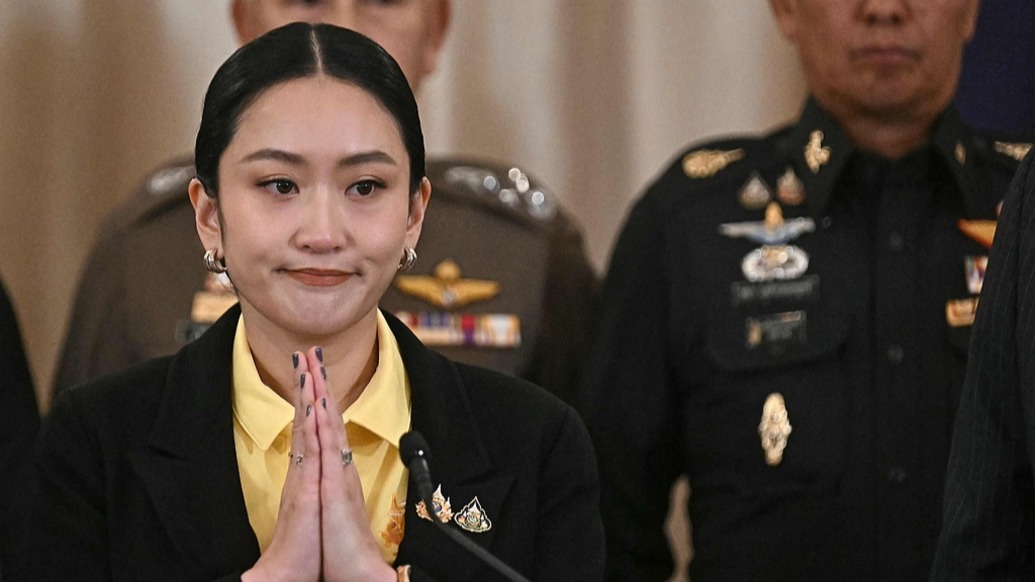
Tranalysis

On June 19, 2025, local time, in Bangkok, Thailand, Prime Minister of Thailand Pe Thongtan held a press conference to apologize to the Thai people for the leak of an audio recording of his own phone call with Hun Sen. Visual China Photo
\I hope Uncle does not listen to those who stand on the opposite side of us, such as the Second Military Region Commander (Boonsin Padklang). After hearing his remarks, please do not feel upset or angry, because this is not our intention at all.\
On June 18th, a private phone call from Thai Prime Minister Pethit Tan to Cambodian Senate President and former Prime Minister Hun Sen was released on social media, causing an uproar in Thailand. In the call, Pethit Tan referred to Hun Sen as \uncle\ and herself as \niece,\ and also \apologized\ for Thailand's actions against Cambodia. This phone call not only failed to resolve the tensions triggered by the brief armed conflict on the Thai-Cambodian border on May 28th but instead plunged Pethit Tan into a crisis of governance.
According to Xinhua News Agency, the second largest party in the ruling coalition, the Bhumjaithai Party, announced on the 18th its withdrawal from the ruling coalition led by Prayuth Chan-o-cha. The party's statement said that the phone call recording incident has attracted widespread attention in society and may have an impact on Thailand's democratic system, national interests, and the military. Prayuth Chan-o-cha should take responsibility for the damage caused by such actions to the dignity of Thailand's nation, democratic system, and military.
Additionally, the largest opposition party in the House of Representatives, the People's Party, has called for Petongtan to dissolve the parliament and resign, while the Upper House, dominated by members of the Ho Thai Party, demands the removal of Petongtan. On the 19th, after an emergency meeting with military leaders, Petongtan held a press conference to apologize for the incident, stating that \the government is ready to support the military in every possible way.\ Benxin responded by saying that Petongtan has provided an explanation and expressed understanding of the situation.
In fact, the Shinawatra family, to which Pe Thongtan belongs, has a close relationship with the Hun Sen family. Last February, Hun Sen personally went to Thailand to visit Pe Thongtan's father, the former Thai Prime Minister Thaksin, who had just been released on parole. They referred to each other as sworn brothers, and Hun Sen had provided Thaksin with refuge during his exile. However, in Thailand and Cambodia, where Thaksin's daughter Pe Thongtan and Hun Sen's son Hun Manet are in power respectively, border conflicts are escalating, involving an increasing number of areas.
Just three months ago, Pheu Thai barely survived a no-confidence motion in the House of Representatives. On June 13th, the case concerning whether Thaksin's imprisonment in a hospital is illegal began to be tried in the Supreme Court of Thailand, which is considered by public opinion to impact the stability and legitimacy of the Pheu Thai government. \Although the no-confidence motion against Pheu Thai in March failed, it revealed the transformation process of its political party, Pheu Thai, in the Thai political landscape. Pheu Thai has not fully integrated into the existing power structure and has allied with the establishment. This operation is not due to ideological identification, and is more likely to cost the party in the political landscape. The broad electorate of reformists do not trust it, and conservative elites have not yet fully accepted it.\ Narongchai Aksornnavin, a visiting researcher at the Yusof Ishak Institute for Southeast Asian Studies in Singapore and acting coordinator of the Thai program, told The Paper (www.thepaper.cn).
The Death of a Border Soldier
On May 28th, a brief conflict occurred between Cambodian and Thai military forces in a disputed border area, with the exchange of fire lasting about 10 minutes, resulting in the death of one Cambodian soldier. Both sides blamed each other for initiating the gunfire. However, after the incident, both Pheu Thai and Hun Manet expressed that they do not wish for the conflict to escalate and will ease border tensions through dialogue. On June 9th, the two countries reached a consensus to redeploy border troops, withdraw heavy armed forces close to the conflict points, and return to the agreed areas of 2024.
Since 2008, sporadic violent incidents have occurred along the Thai-Cambodian border, resulting in at least 28 deaths. The last major deadly conflict took place in 2011 when the two countries engaged in armed conflict near the World Heritage site of Preah Vihear Temple, which is subject to a sovereignty dispute. Heavy weapons such as rocket launchers and artillery were deployed, causing dozens of casualties and the evacuation of over 10,000 people. Preah Vihear Temple was originally constructed in the 10th century, and on June 15, 1962, the International Court of Justice ruled that Preah Vihear Temple belongs to Cambodia, but the two countries still have disputes over the territory near the temple.
The area where the border conflict occurred is known as the Emerald Triangle, located at the junction of Cambodia, Thailand, and Laos. Data shows that there are multiple disputes along the more than 800 kilometers long boundary between Thailand and Cambodia, which was mostly demarcated during the French colonial period in Southeast Asia.
\The boundary demarcation negotiations between Thailand and Cambodia are inherently complex, especially involving 4 disputed areas - Mom Bei (also known as the Emerald Triangle), Ta Moan Thom Temple, Ta Moan Tauch Temple, and Ta Krabei Temple,\ said Chheang Vannarith, a lecturer at the S. Rajaratnam School of International Studies at Nanyang Technological University in Singapore and the founding chairman of the Angkor Social Innovation Hub in Siem Reap, Cambodia, to The Paper.
In the recently held meeting of the Joint Boundary Commission of the two countries, the above-mentioned four border dispute areas were not discussed. The Cambodian side once again played its frequently mentioned \International Court of Justice card.\ Hun Manet announced on June 15th that Cambodia has submitted an official letter to the International Court of Justice (ICJ) in The Hague, seeking to resolve disputes in the four border areas. The spokesperson for the Thai Ministry of Foreign Affairs, Nichond, countered by saying that Thailand has never recognized the compulsory jurisdiction of the International Court of Justice, advocating for the resolution of related issues through bilateral mechanisms and diplomatic dialogue.
The Thai \Nation\ newspaper reported that Cambodia's submission of a letter to the International Court of Justice on June 15th was a \carefully designed\ move, as this day marks the 63rd anniversary of Cambodia's historic victory in the Preah Vihear Temple ruling case. The newspaper believes that Cambodia has always regarded this victory in 1962 as an important basis for its ongoing diplomatic efforts.
\The Cambodian side believes that the existing bilateral mechanisms cannot resolve the issues of the aforementioned four disputed areas. Therefore, Cambodia has decided to settle the disputes through the International Court of Justice, hoping to thoroughly resolve the differences and enable future generations of both countries to coexist peacefully. The recent threats and unilateral border measures are seen as acts of coercion and humiliation, and the Cambodian side believes that a firm response is necessary,\ Xie Wanale said, \Nevertheless, the Cambodian government still calls on the public not to escalate the issue into ethnic or national conflicts. Maintaining normal cooperation in trade, tourism, and other fields remains very important.\
AFP cited the analysis of Bidee Srisavasdi, director of the Center for Southeast Asian Studies at Chulalongkorn University in Thailand, pointing out that the current actions seem to be another political game testing geopolitical wisdom, where political figures attempt to provoke controversial topics and guide public opinion, actually aiming to consolidate their own political power during the transition period.
Even though the high-level and military of the two countries have carried out a series of communications, the border conflict has not been eased. The confrontation between Cambodia and Thailand continues, with methods including shortening the stay period for citizens of the other country, shortening the operation time of ports, and restricting border trade. Civil forces on both sides have initiated actions of boycotting each other's goods and inciting hateful speech, and other nationalist actions. The Cambodian hacker team AnonSecKh also launched a cyber attack on the Thai government and military. Thai TV dramas and movies have been banned from broadcasting in Cambodia.
On the 17th, the General Department of Immigration of Cambodia confirmed to Xinhua News Agency reporters that due to Thailand not resuming the normal operation of border ports, Cambodia has banned all Thai fruits and vegetables from entering Cambodia through border ports since that morning.
Ukrit Wongthongsakul, the chairman of the Chanthaburi Chamber of Commerce in Thailand, emphasized the importance of several Cambodian-Thai border crossings to the local economy. He warned that if these crossings are closed for a week or longer, the economic loss could exceed 1 billion baht. \It's not just about the trade value. There is also a labor issue. Cambodian workers account for more than 80% of Chanthaburi's agricultural labor force, responsible for fruit picking, sorting, and packaging,\ he said.
Data from Thailand's Ministry of Foreign Trade shows that in 2024, the border trade volume between Thailand and Cambodia reached 175.53 billion baht (approximately 38.488 billion yuan), with exports amounting to 141.85 billion baht and imports totaling 32.68 billion baht. Thailand's main export products include beverages, automotive and motorcycle parts, engines, and agricultural machinery. Cambodia's main exports are cassava, scrap metals (aluminum and copper), and electrical wires, which are crucial for Thailand's downstream industries such as feed, recycling, and electronics.
\The existing hotline communication mechanism between the two governments seems to have little effect, partly because the Thai civilian government's decision-making power is limited in closing borders and dealing with other complex border affairs. The situation may further deteriorate, with the risk of armed conflict breaking out at any time. Cambodia is preparing for the worst-case scenario, emphasizing the need to strengthen self-defense, remain vigilant, and continue diplomatic efforts to prevent the situation from escalating. ASEAN and the international community must closely monitor the escalating border tensions between Cambodia and Thailand.\ Xie Wanalei said to The Paper.
Will there be a military coup in Thailand?
This border conflict subsequently triggered a political crisis known as the \Telephone Gate\ within Thailand. The phone call was initially released by Sam Rainsy, a member of Cambodia's then-largest opposition party, on a social platform on June 18th, with a duration of approximately 9 minutes and 30 seconds. Subsequently, Hun Sen confirmed on a social platform that the phone conversation with Pheu Thai took place on the evening of June 15th, which was the same day Cambodia submitted a letter to the International Court. He also released the complete 17-minute and 6-second call recording.
Hun Sen stated that, according to convention, to avoid misunderstandings or misinterpretations, and out of consideration for transparency within the government, such phone calls must be recorded. He also said that the recordings were sent to 80 politicians, \perhaps some people do not like the Prime Minister of Thailand, so they released the conversation.\
\He (the commander of the second military region) wants to make himself look smart. Therefore, what he says is not beneficial to the country. In fact, we hope to restore the peaceful state before the border conflict,\ Pethuntan said over the phone. She laughed and asked Hun Sen to sympathize with his \niece\ because now \the Thais all blame me for wanting to become the Prime Minister of Cambodia,\ and frankly admitted that the Thai government is under tremendous domestic pressure. The previous exposure that Thailand was going to \cut off water and electricity\ to Cambodia was just a planned measure and would not really be implemented, and she apologized to Hun Sen for this. Pethuntan also proposed that both sides issue a joint statement to show their consistent willingness to maintain peace.
The Thai public was shocked by Petthongtan's remarks over the phone. According to the British Broadcasting Corporation (BBC), Petthongtan had earlier this month stated that the close relationship between the Hun Sen and Thaksin families would not hinder her from defending Thailand's national interests. However, critics find her evident respect for Hun Sen in the phone call to be disturbing. She referred to Hun Sen as \uncle\ and promised to \take care of his needs,\ saying that whatever Hun Sen wants, \she can handle it herself.\
After the incident, Petongtan urgently convened a press conference to admit that the recording was true. Petongtan defended herself by saying that she learned through translation that the Cambodian side was very dissatisfied with the commander of the Second Military Region, so she had a \softer tone\ and \negotiation skills\ in the conversation with the goal of \maintaining national peace, national sovereignty, and interests\.
Phetongtan also accused Hun Sen of not keeping his word. On the phone, Hun Sen promised that as long as Thailand opens its ports, Cambodia will follow suit within 5 hours. However, just as the Phetongtan government and defense team began discussions on this matter on June 16, Hun Sen once again threatened Thailand on Facebook: \If Thailand does not open within 24 hours, Cambodia will close all ports.\ Phetongtan believes he has become a tool for Hun Sen and his son to consolidate domestic support.
\I will no longer have private conversations with Hun Sen in the future, but I do not know if the friendship between the Chinnavath family and the Hun Sen family still exists,\ Pet Tongtan said.
The \Telephone Gate\ incident has had a substantial impact on the stability of the Petongtan government. After the Proud Thai Party withdrew from the government on the 18th, the Petongtan government could only barely maintain a majority in parliament. Although it is not likely to collapse, it is expected to face significant obstacles when promoting major bills, including the highly controversial casino legalization bill and the fiscal budget bill. Previously, at the critical moment when the Thai-Cambodian border conflict erupted, the Petongtan government submitted the fiscal year 2026 budget bill, which was smoothly passed by Congress. In addition, according to a report by the \Diplomat\ website on June 19, the flagship project of the For Thai Party during the election campaign, the electronic wallet plan, has effectively been abandoned, which is another major setback for the government.
Researcher at the Yusof Ishak Institute for Southeast Asian Studies in Singapore and Acting Director of the Thai Studies Programme, Minghui Mai, said in an interview with Lianhe Zaobao that the current situation is still full of variables. The Thai ruling coalition has 324 lower house members, and after the departure of the Houtai Party, it is left with only 255 people, while the ideal number is at least 270. \The Thai Party may next form an alliance with some smaller parties, or members of parliament who have previously expressed their intention to switch camps.\
Opposition figures have said that Petuntan should dissolve the House of Representatives for new elections to prevent going into a dead end and causing another military coup.
Thai commentator and seasoned media personality Pavin said in an interview that this incident could trigger a military coup, and the Bhumjaithai Party, seen as a conservative force, is repositioning itself as an ultra-nationalist party and may replace the Pheu Thai Party to lead the government. \I think the risk of a coup is about 40%, and the specific situation depends on public sentiment, the scale of anti-Thaksin family demonstrations, and how long they will last.\ \However, there is a key factor that may prevent a coup, and that is Thailand's poor economic situation.\
Thai political commentator and doctoral student in the Department of Political Science at the University of Michigan, Ken Mathis Lohartpanont, analyzed to The Paper, saying that the military and the Pheu Thai Party reached a so-called significant compromise in 2023, successfully forming a government, but there are still doubts about whether this alliance can be sustained in the long term.
His role
Luohatepan Nuonote also noted the active role of former Prime Minister Thaksin in a series of controversial events in Thai politics. At the end of May, Thaksin revealed to the media that the Thai-Cambodian governments maintain close contact over border disputes, and he himself maintains communication with Hun Sen on a regular basis. Thaksin also suggested that border grassroots soldiers could enhance mutual understanding and alleviate tensions through common traditional folk sports such as playing Sepak Takraw.
However, judging from the development of the situation, his personal connections have not played a significant positive role. \The opposition has recently focused its attacks on Thaksin himself. The People's Party criticized Peutangtan for 'lacking qualifications and ability,' damaging Thailand's international image, engaging in interest transfer, dishonesty, overall chaotic governance, and rampant corruption; more importantly, it accuses him of appointing suspicious individuals to key positions, giving excessive influence and power to family members - namely Thaksin.\ Thai political science expert and Professor at Chulalongkorn University, Thitinan Pongsudhirak, told The Paper.
In Ponsudilac's view, despite stepping down, he still gives speeches nationwide and attends major conferences in Bangkok, proposing many policy perspectives, \almost forming an image of maneuvering behind the scenes.\ He told The Paper: \His team from 20 years ago surrounds Petongtan, cooperating tacitly. Due to the possibility of violating the constitution with direct involvement, he ostensibly avoids suspicion.\
Jatulis Bitake described to The Paper that the general public has already discovered the current mode of operation of the Thai government: Thaksin would casually talk about what the government should do, and by the next cabinet meeting, his suggestions would become official policies. \The Pheu Thai Party and Thaksin himself obviously did not try to cover up the fact that he exerts a huge influence in politics. Thaksin actively campaigned for Pheu Thai Party candidates in last year's local elections and continued to appear in the party's social media promotional materials,\ said Lohartpanont.
In addition to domestic affairs, he has also frequently appeared in numerous diplomatic matters such as the Cambodian-Thai border, for example, recently re-mentioning the controversial Southern Thailand crackdown during his tenure to appease the Malay community in Southern Thailand. He also serves as a consultant for the Indonesian sovereign wealth fund and helps Malaysia, the ASEAN rotating chair, to deal with the Myanmar issue.
\ intervention actions may remind the Thai political elite that Thaksin has extensive international connections, thereby enhancing his bargaining power in domestic politics without directly challenging the existing power structure - making Thailand's conservative system think twice before trying to discard him. However, it is currently unclear whether this 'insurance policy' can truly secure his long-term position in Thailand,\ Jatusri Pittak analyzed.
In Jatuporn Kittikachorn's view, the more prominent his performance, the more likely it is to create the so-called \democratic deficit\: important policy decisions come from a person without a public office and not subject to constitutional checks and balances. \This is contrary to the public interest,\ he said.




